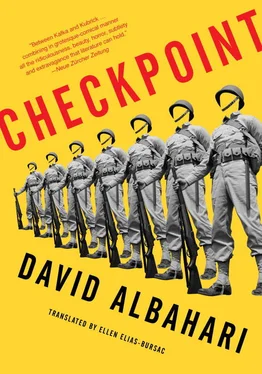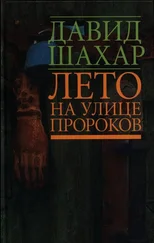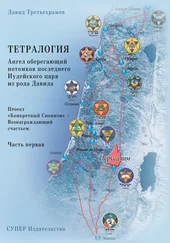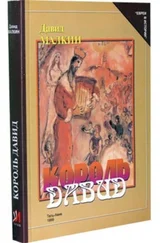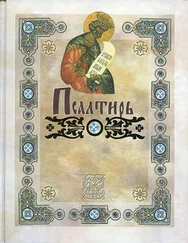In the evening, when the daily orders for the next day were read out, he’d announce who was on “sanitation” duty for the next morning, and they were dubbed “shitty granny” or “shitty gramps” by the soldiers. But these nocturnal forays remind us that we need to explain how we managed once night fell. First, we had a few kerosene lamps, standard issue for rustic bivouacs, places where there’d probably be only intermittent electric current and other power, and beyond that every soldier was issued a package of slow-burning candles, and there were also plenty of extra candles in the squad depot. Kerosene lamps and big candles, flames in the night air, created a romantic mood and who knows what someone might have thought when seeing so many flames flickering in the dark barracks. More eyes might have been watching than we knew. Hence the difference between us and “them”: they always knew more about us than we about them, especially when it came to numbers. Whatever the case, the next morning we found a dead raven. One of its legs had been crushed, its wings snapped, its beak plucked out. The soldiers pressed around it, shouted and cursed. They were more unsettled by the dead bird than by the latrine sentry murder. “Whoever they are, they’re not human,” said one soldier, “they’re monsters and they deserve to die!” “Now!” shouted other soldiers and gathered around the commander when he came over to see what was up. They pointed to the raven, but apparently the commander was not as alarmed; he told them to pull themselves together. “Our men are out in the forest,” said the commander, “and until they return, no one moves, understand?” The soldiers mumbled something conciliatory and returned to their duties. The sun beat down mercilessly, most unusual for the time of year, and some of the soldiers quickly tanned to a bronze, but there were others whose backs, arms, and shoulders, and, I should add, faces became a mass of blisters. “We won’t be sleeping tonight,” thought the commander, but then the cry went up: “Here they are, they’re coming!” When the commander ran over to the checkpoint there they were: the squads had apparently each lost a man. In each, the two surviving soldiers were carrying a third. They toiled up the hillside and we, while they were still far away, could hear their labored breathing and choked coughs. Each squad reached the barrier at almost exactly the same moment, and someone remarked that somehow, somewhere in the forest, each must have taken a wrong turn: each returned to the same side of the checkpoint from which they’d left. But when the men were told, they insisted doggedly that they could not remember one path intersecting another nor that they were ever in doubt about which way to go. “The forest was hushed,” said one of the soldiers, “and we took care to honor the quiet. Had we run into the other squad, our conversation would have sent out shockwaves like a bomb blast.” This may explain why both soldiers were killed by arrows, an old-fashioned yet deadly weapon, the fletching still protruding from their chests. The commander fumed and swore up a storm, using curses even the worst drunks and bastards would have been proud of, though, obviously, nobody could blame him. Everything might have been different had we known why we were there, what we were protecting, from whom. What could possibly have been the point of a checkpoint on a road that no one ever traveled, which may have run in a circle? Or was its sole goal an illusion of passage, a chimera of progress, a launching pad for new victories, yet a trap, bait for the gullible, a carbon monoxide van to swallow souls, inside which people died from a surfeit—not a shortage—of air. Or, as one soldier put it, everything is so unreal precisely so that we won’t figure out that “our side” was actually attacking us, unaware, perhaps, that we’re “theirs.” Who is “our side” in this war, anyway, where we’re making this guest appearance, where even we have no idea what we’re up to? Wouldn’t it make more sense for us to march home and put this all behind us? “No, no, and no,” scowled the commander. “There will be no homeward march. And besides,” he asked, “where would we march to, and how—does anyone know? The telephone lines are down, the radios dead, we have no carrier pigeons to take our messages out, and even if someone were to set out for the headquarters, which road should they take to get there? Is there such a road?” The commander summoned the clerk and issued his order for the next day: we were to spend the whole day searching for a solution to our outlandish predicament. “We owe this to those who’ve died,” announced the commander during our modest repast: a big roll and a small tin of sardines for each of us. During dinner something else happened, a story flew from ear to ear that men from one of the squads, only two of them, had caught sight of village dwellings in the distance through a haze across a clearing. One of them even swore he heard cows mooing and dogs barking. It was still early, wisps of fog swirled among the trees and over the meadows, but from the chimneys of the houses rose puffs of smoke, the household was up and about, probably at breakfast, and they’d soon be going out to tend to their morning duties. The soldiers, the two, even saw a front door slowly open, but then the order came to move on and off they went. They quickly told the squad leader, and he heard them out but wouldn’t go back. That, he said, as the two soldiers reported, would give the advantage to whoever was following them, and there definitely were people, sad to say, who were out to ambush them without mercy. The commander heard the rumors and called the two men over. He asked the corporal who’d escorted them to step away because he didn’t want any part of their conversation to leak out. He questioned the soldiers closely about the houses and farmyards they’d seen, and he even sketched a house in a few quick strokes to see if it resembled what they’d seen, despite or because of the fog, which had enticed them with its swirls. Once the soldiers had told him what they knew, the commander, as they later said, took from a drawer a map that had been folded and refolded many times, smoothed it out, placed a compass on the table, and gauged something for a time with the compass and a protractor. Of course, he might be mistaken, but if we gave him the benefit of the doubt, he said, then where those two soldiers said they’d seen houses and outbuildings, there was nothing, or, and now this really was strange, said the commander, there once had been houses like the ones they described, but—here he stopped and stared away into the distance—the whole area had been flooded a little farther north to make a reservoir for a hydroelectric dam that was never, said the commander, put into operation. Are you sure, he asked, now standing in front of the entire company, that the houses you saw weren’t under water? But the soldiers were quick to dismiss this idea, and that what they’d seen might have been a mirage. Both laughed aloud as if they’d spent a whole evening practicing this in tandem. Someone said, “Let Mladen have a look,” and they all hastened to concur. Mladen knew how to survive in the forest, so he’d know where to look and what to see. A spat later flared up about whether he should go alone or with an escort, but the commander interrupted this as it ended—or almost ended—saying we were out of time. A person alone is always more efficient than two or three. “In the old days,” said the commander, “many an expedition floundered because the leader would have to keep track of an oversized crew: cooks, dog handlers, natives, masseuses.” Then he suggested we ask Mladen whether he needed an escort. As far as he was concerned, said Mladen, an assistant might be helpful, but he was better off on his own.
Читать дальше
